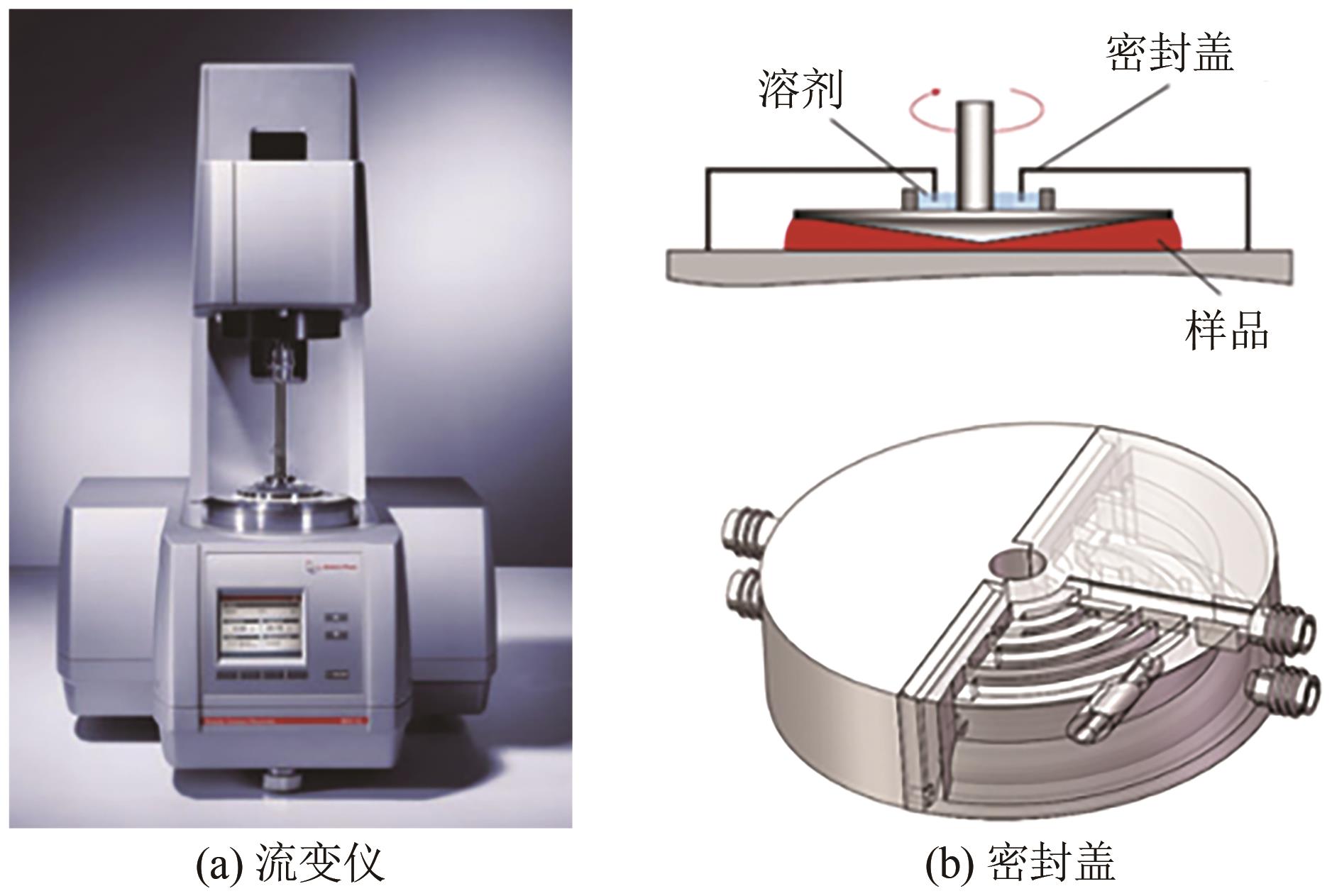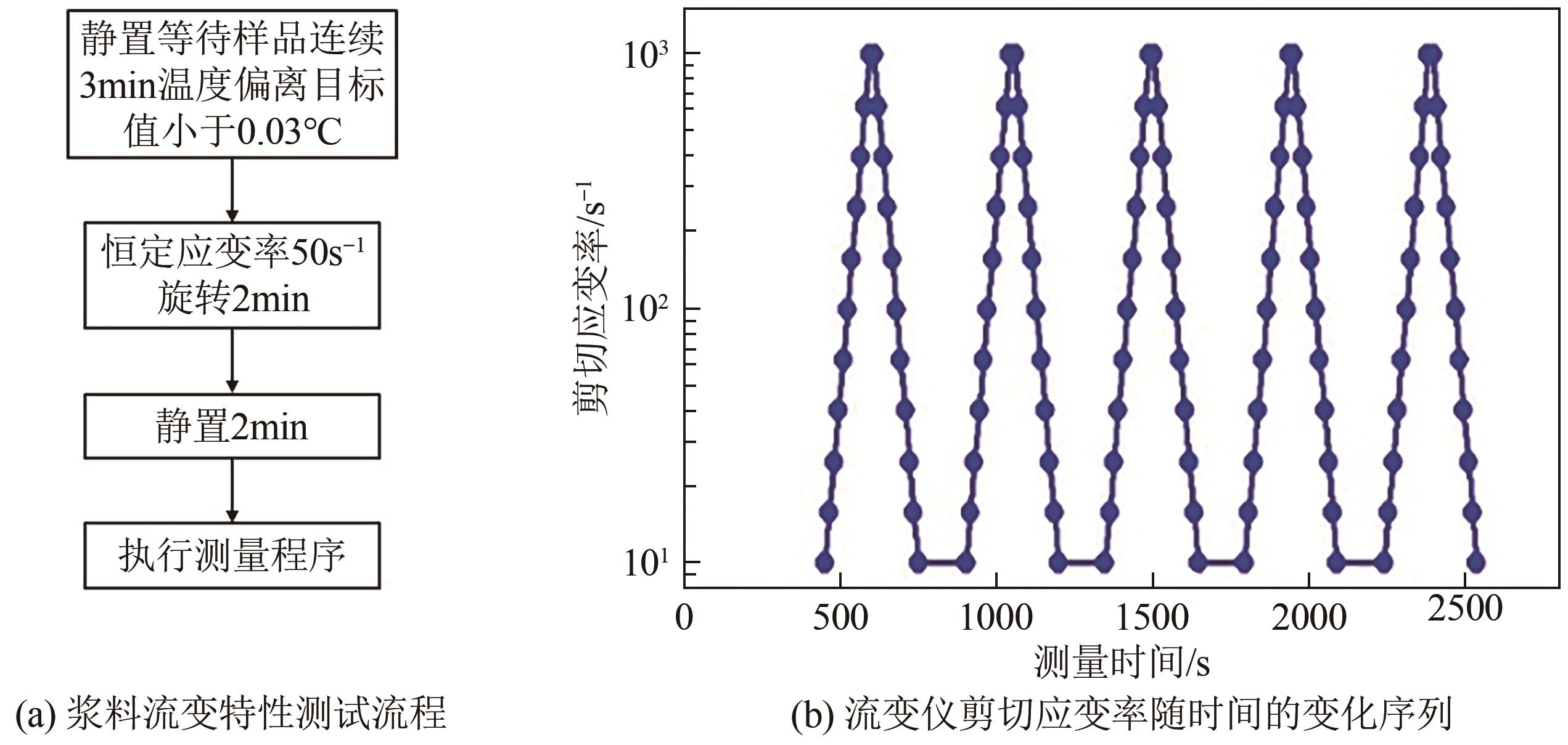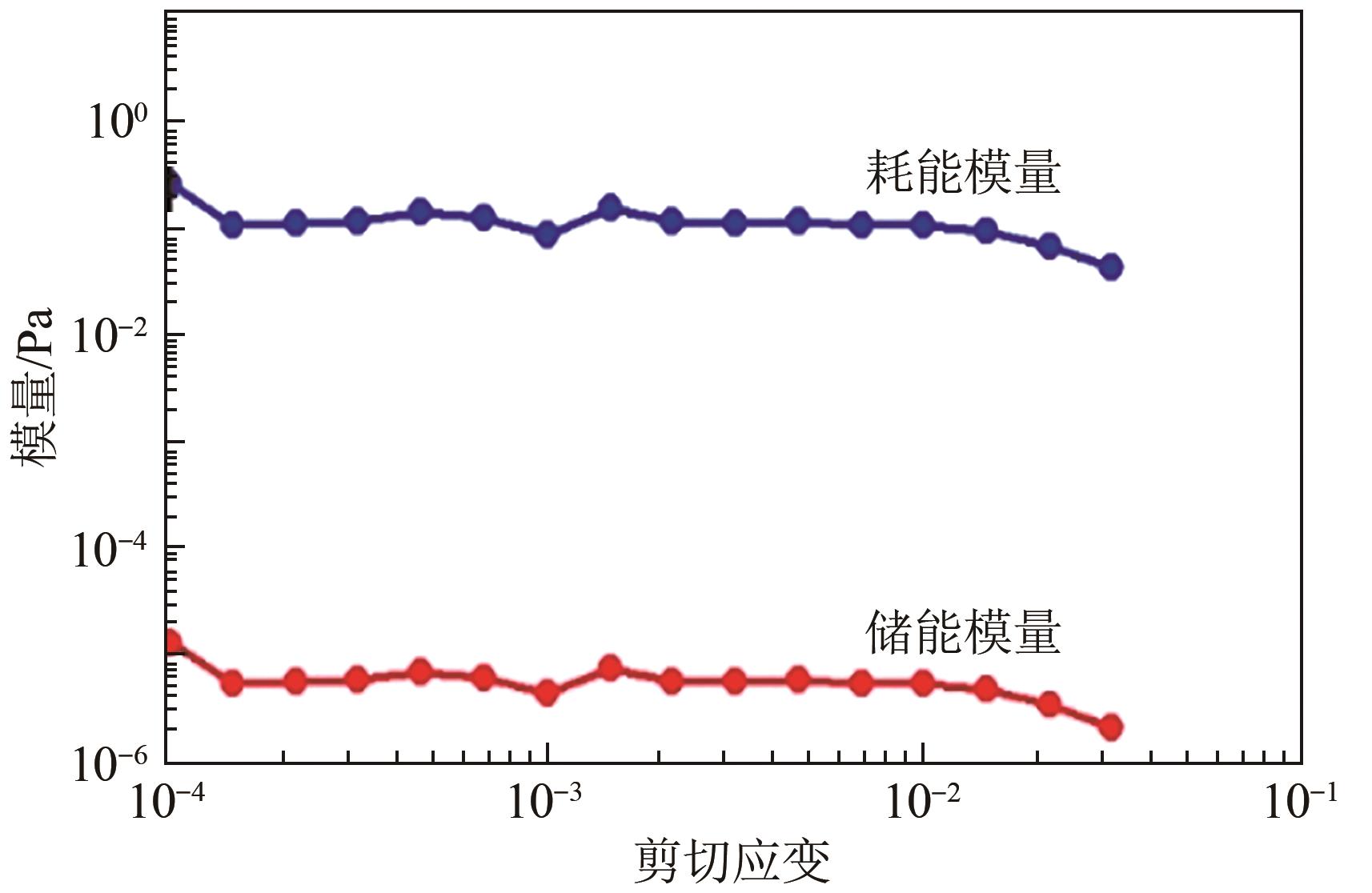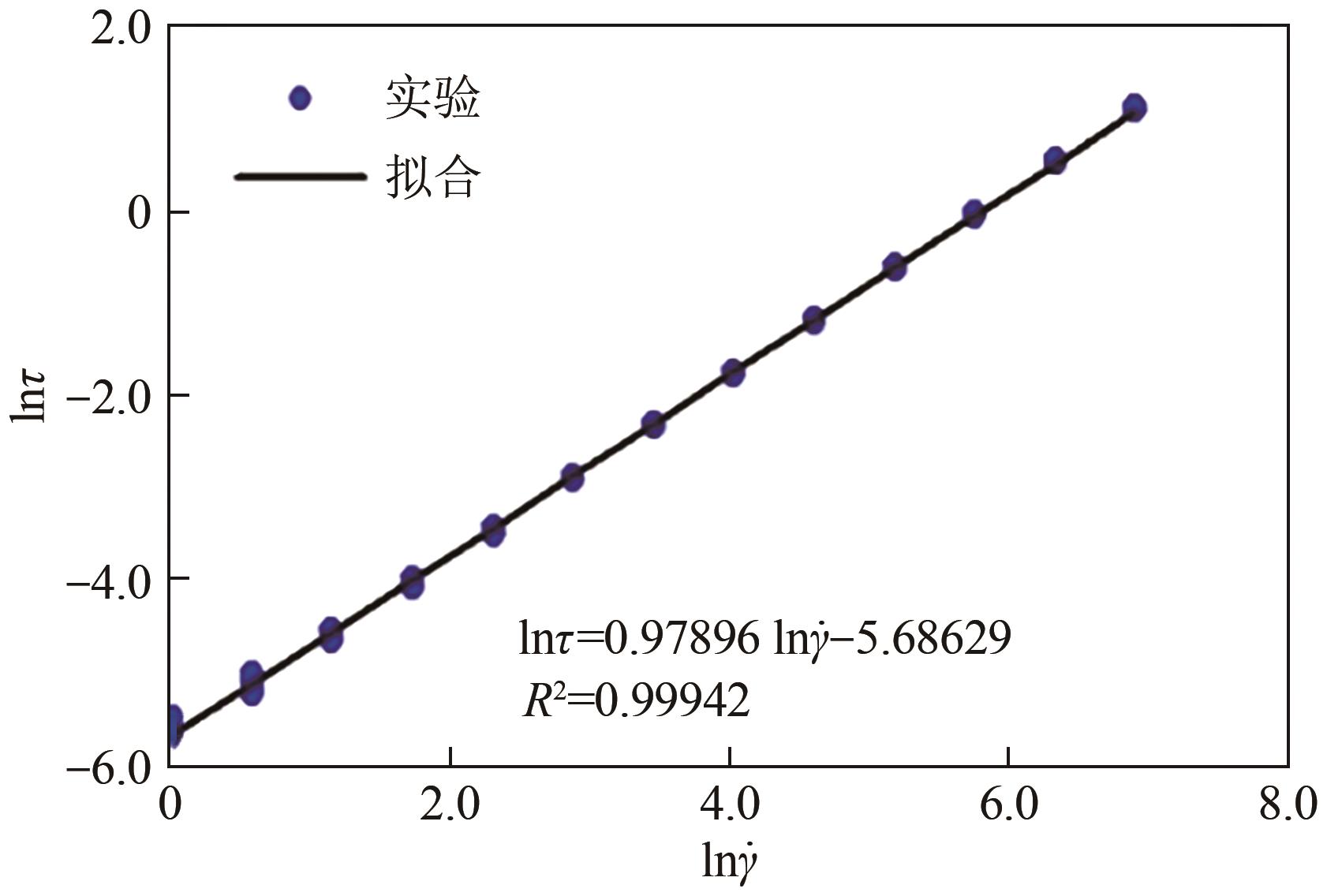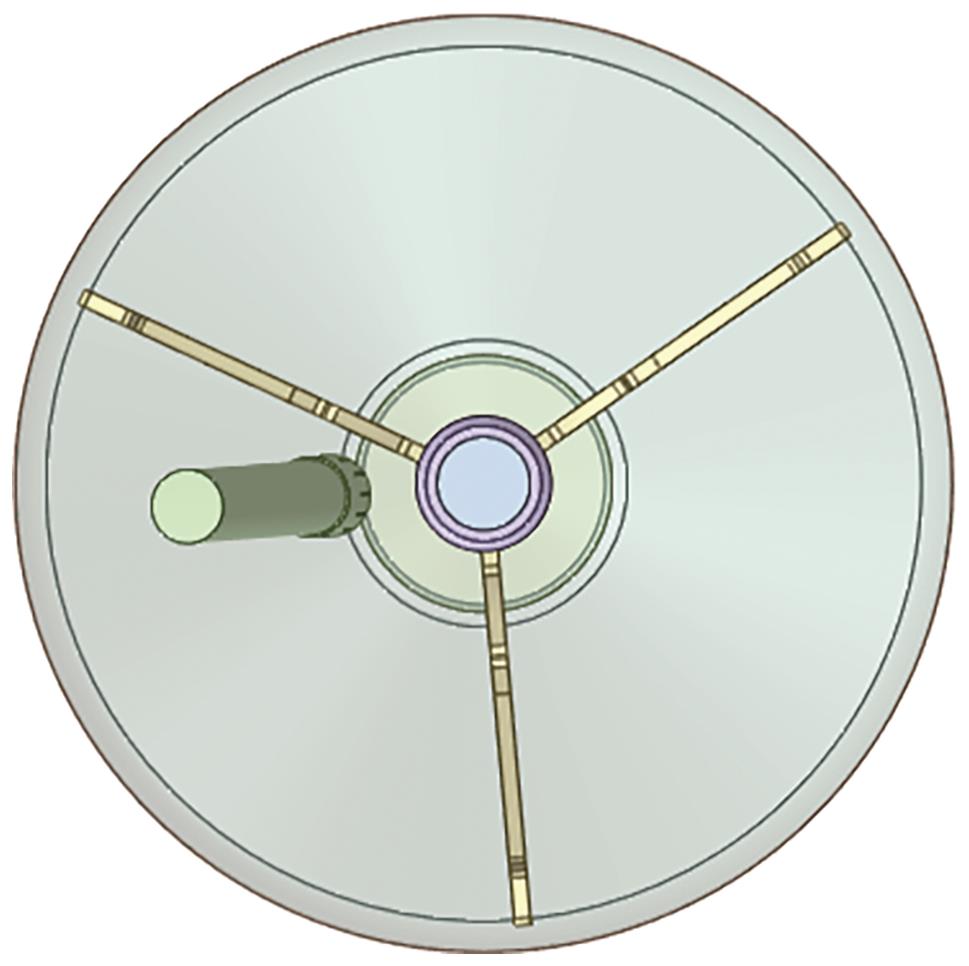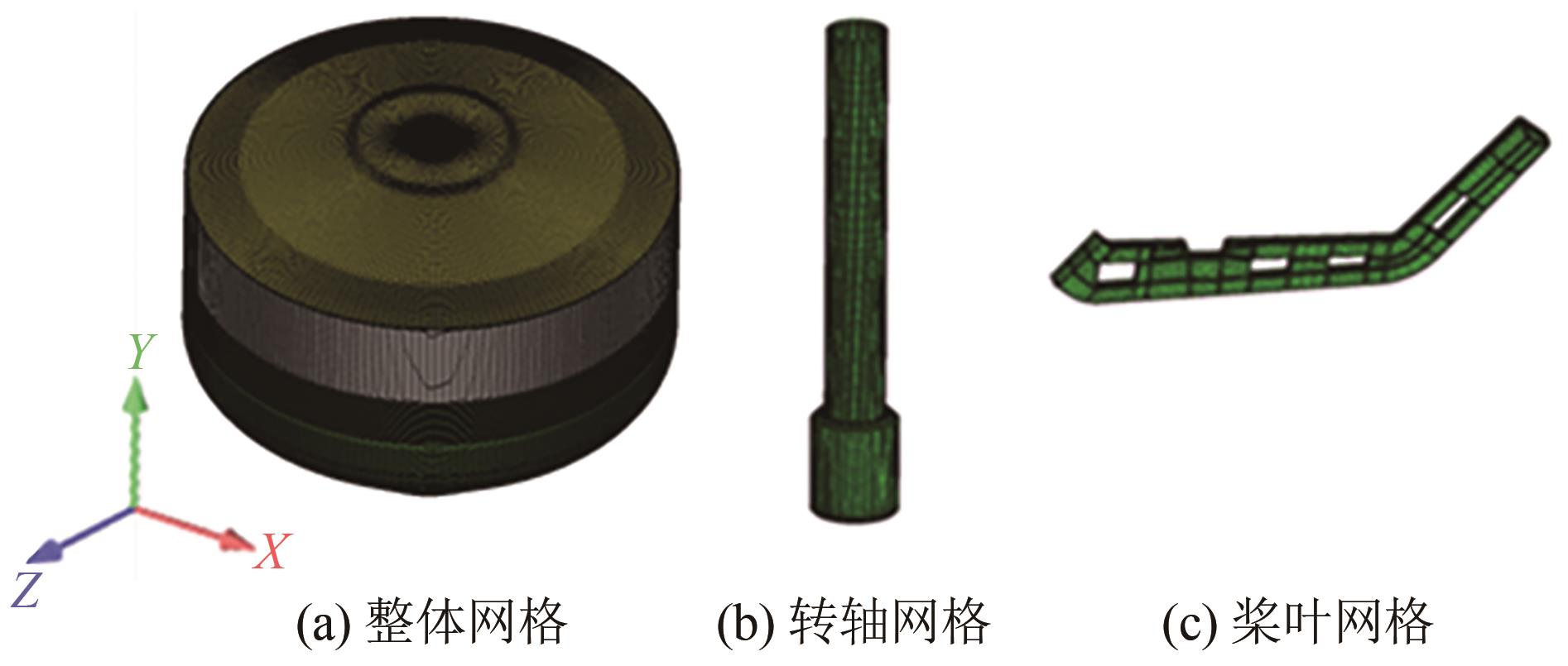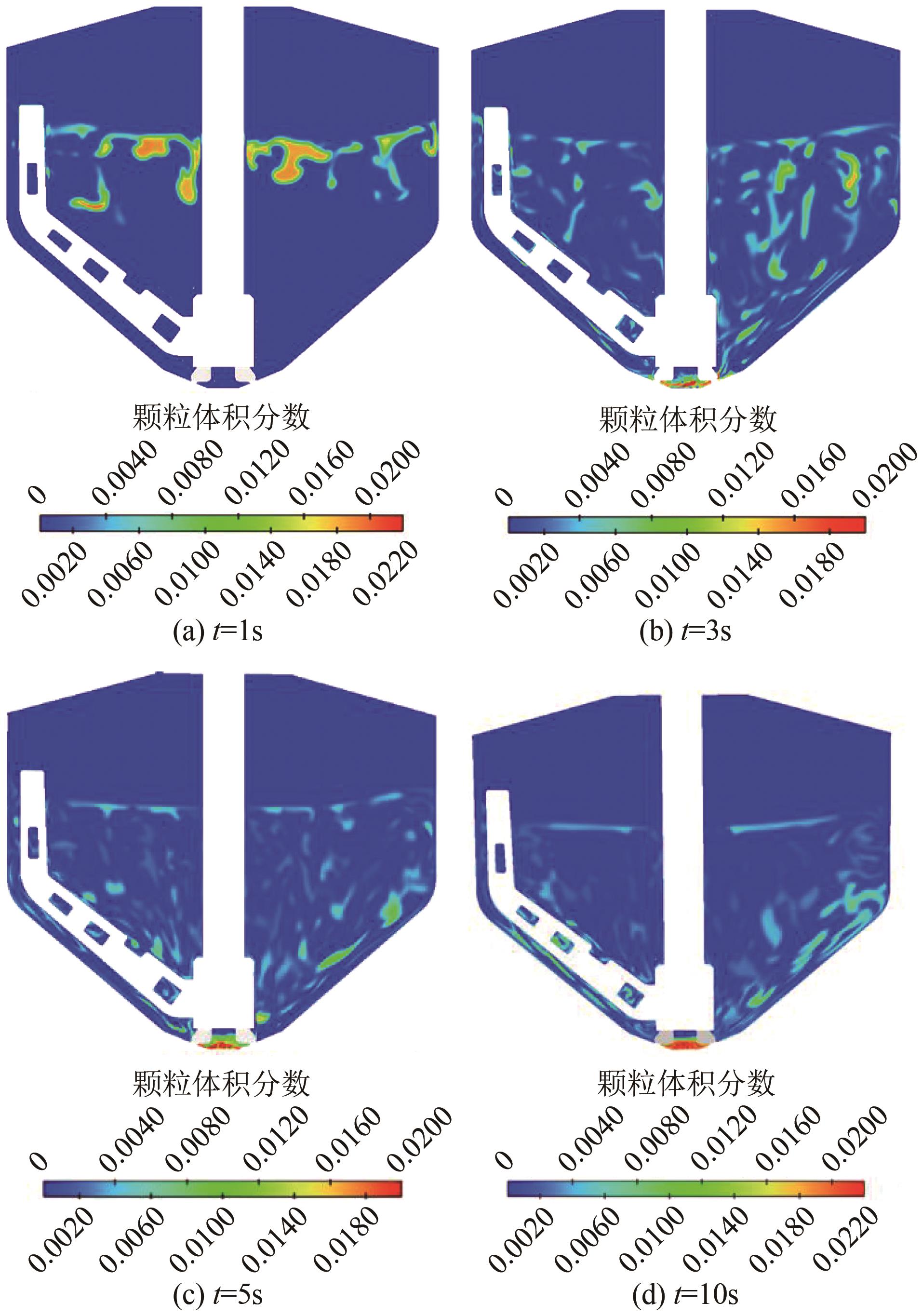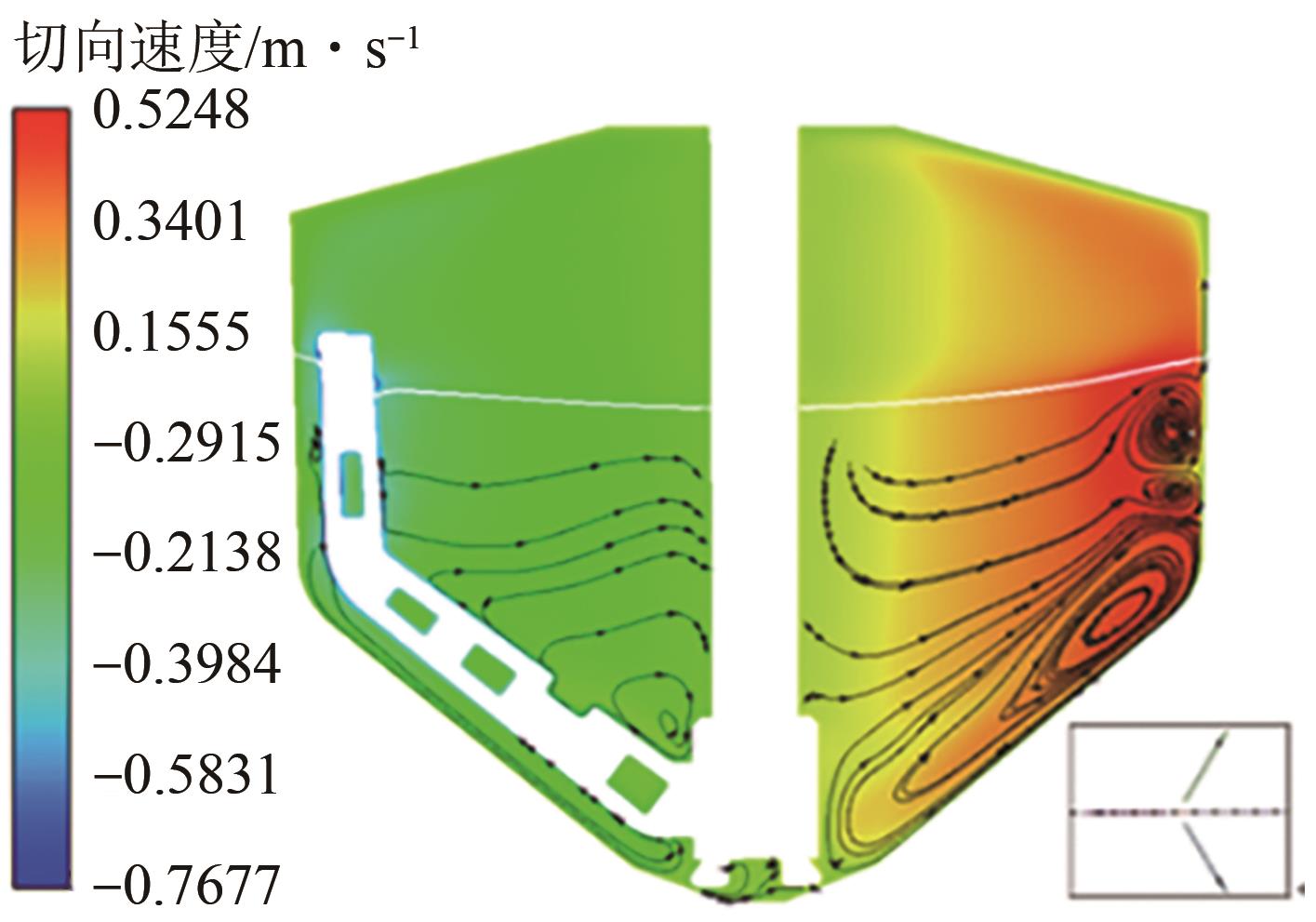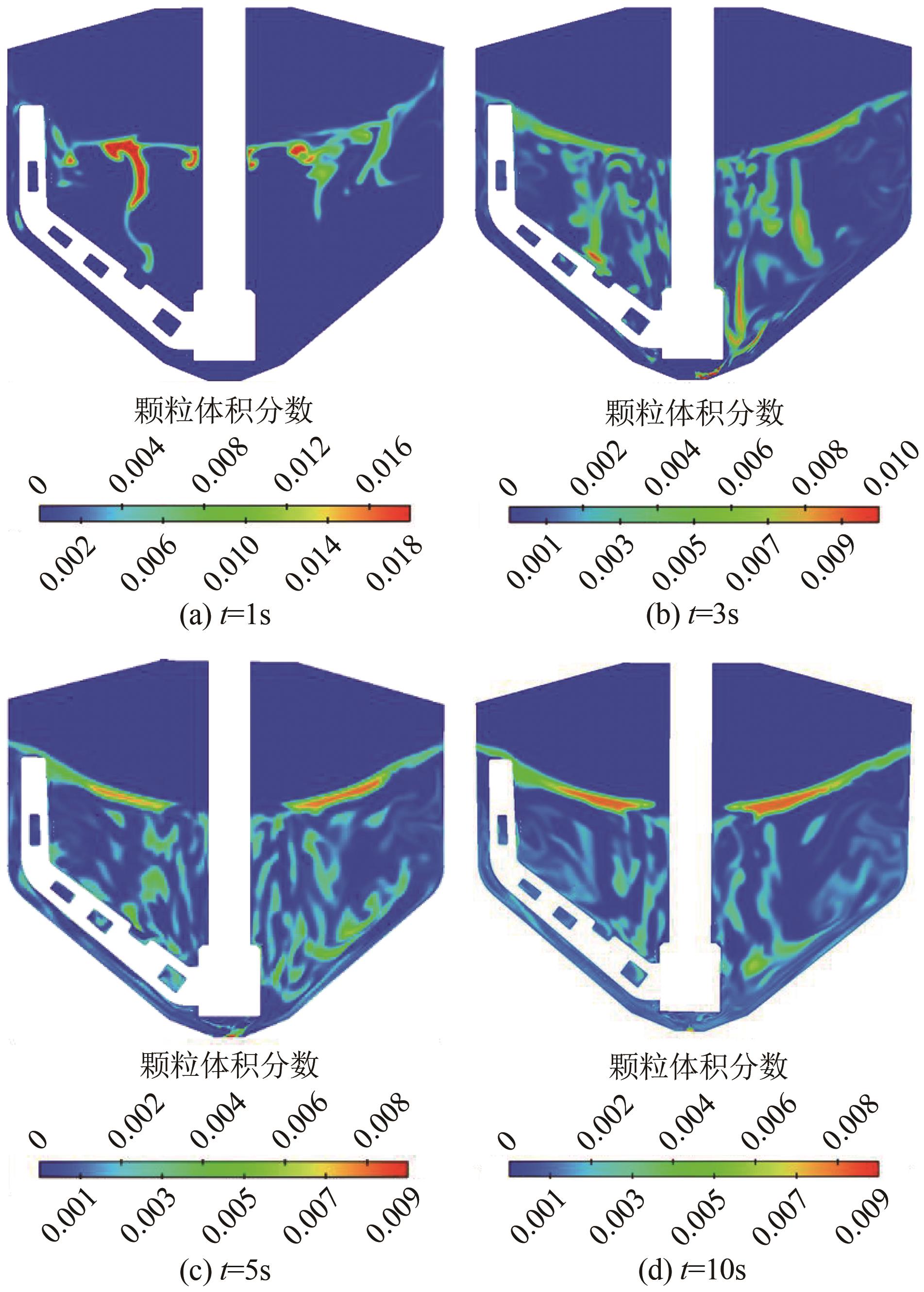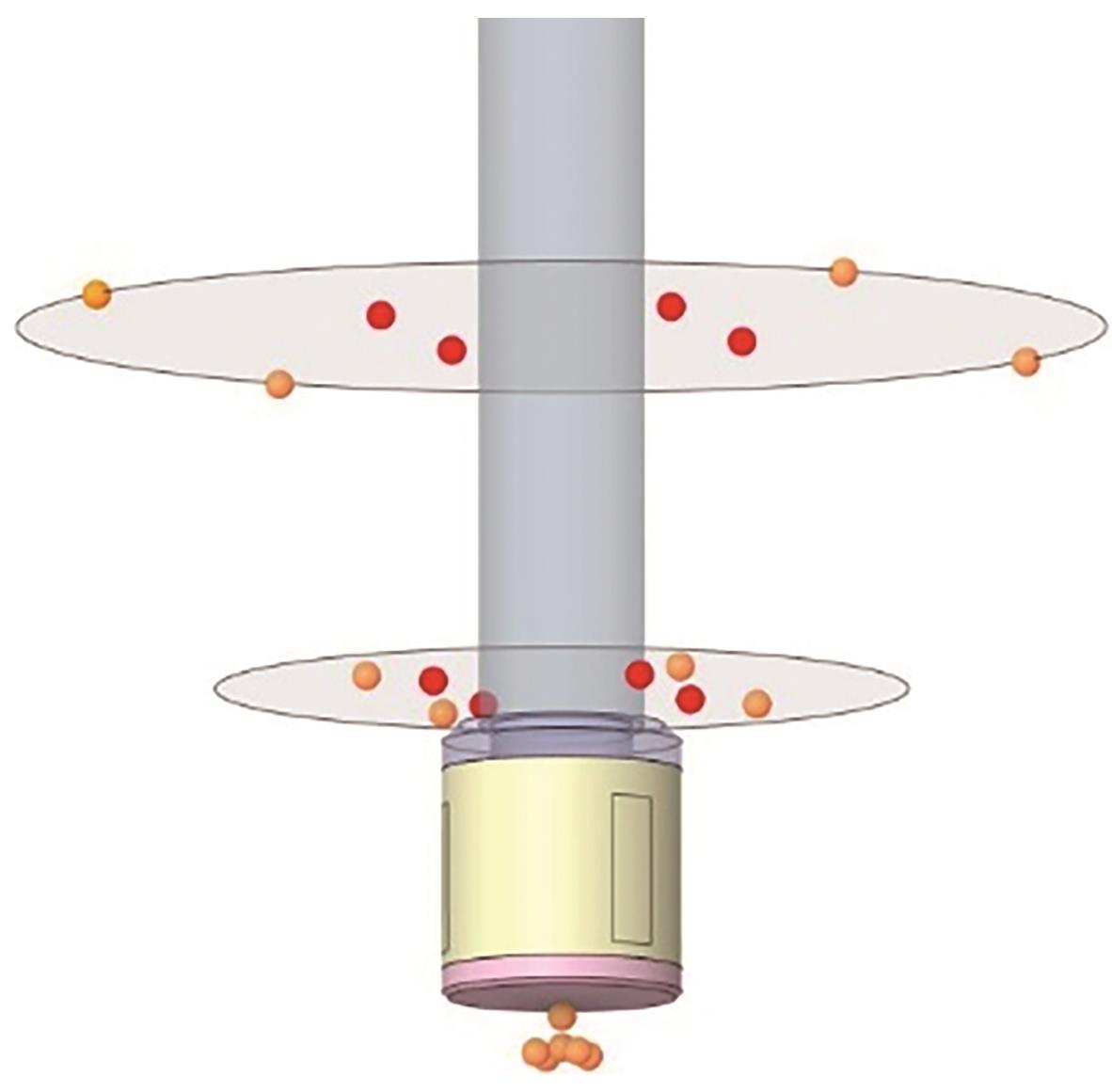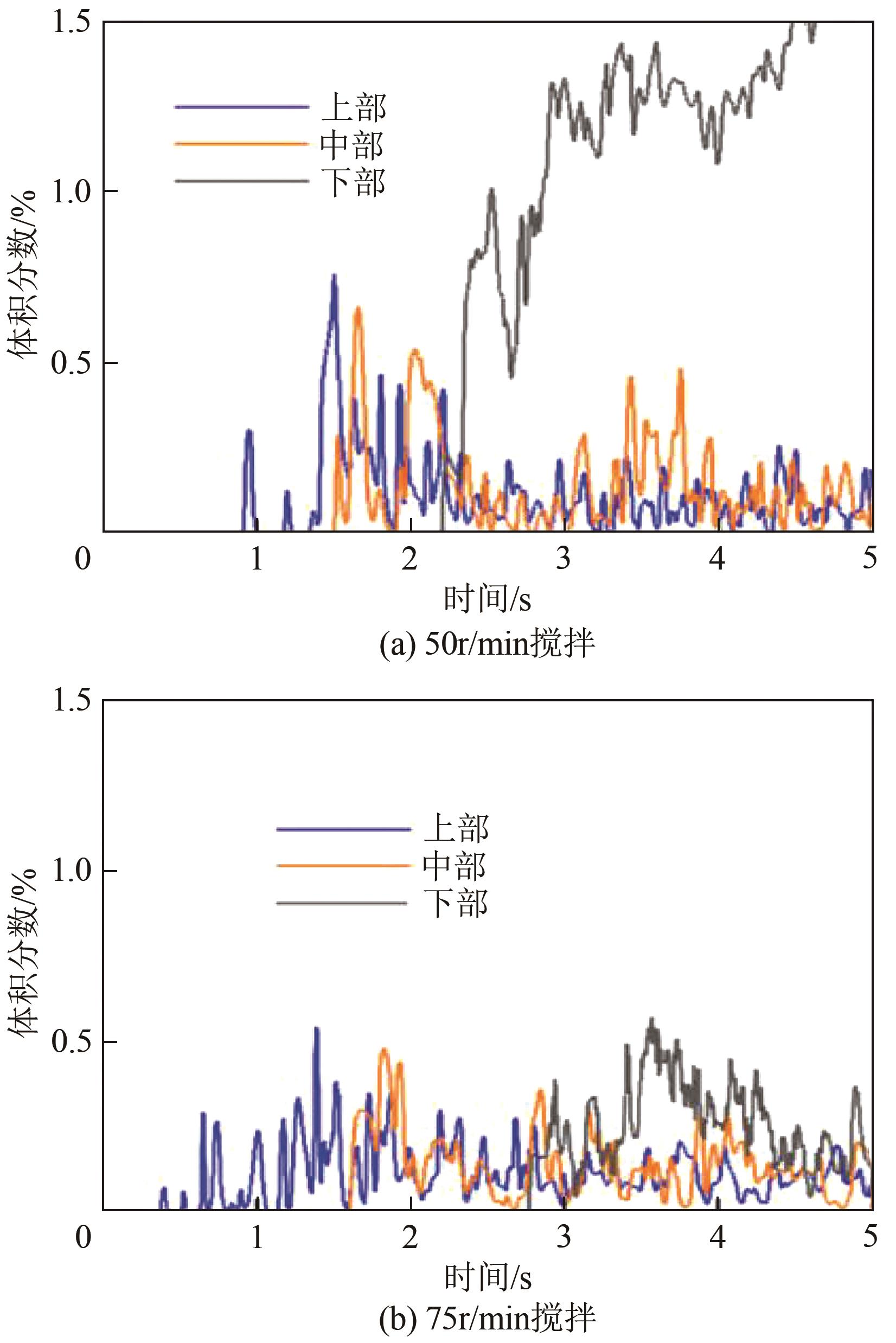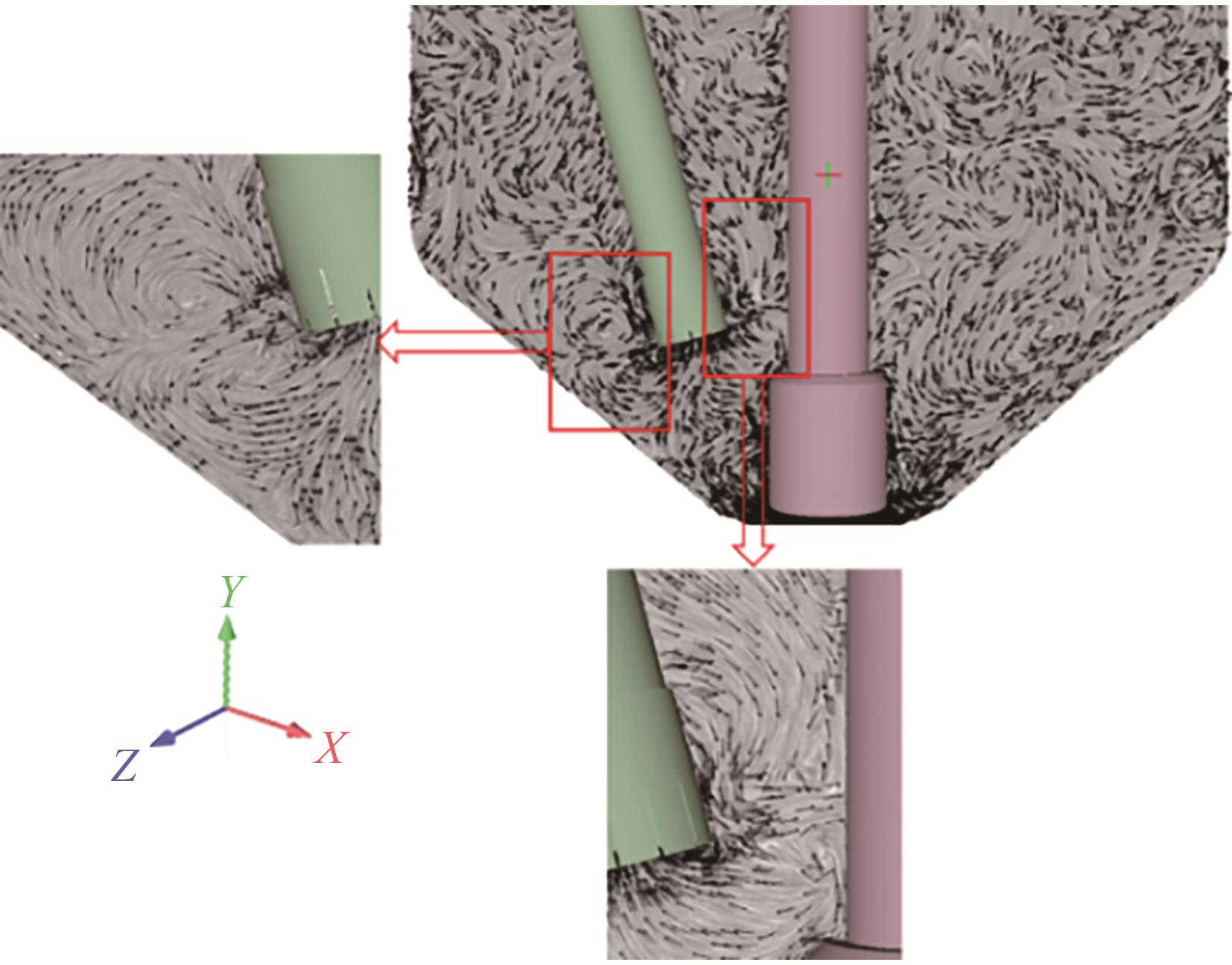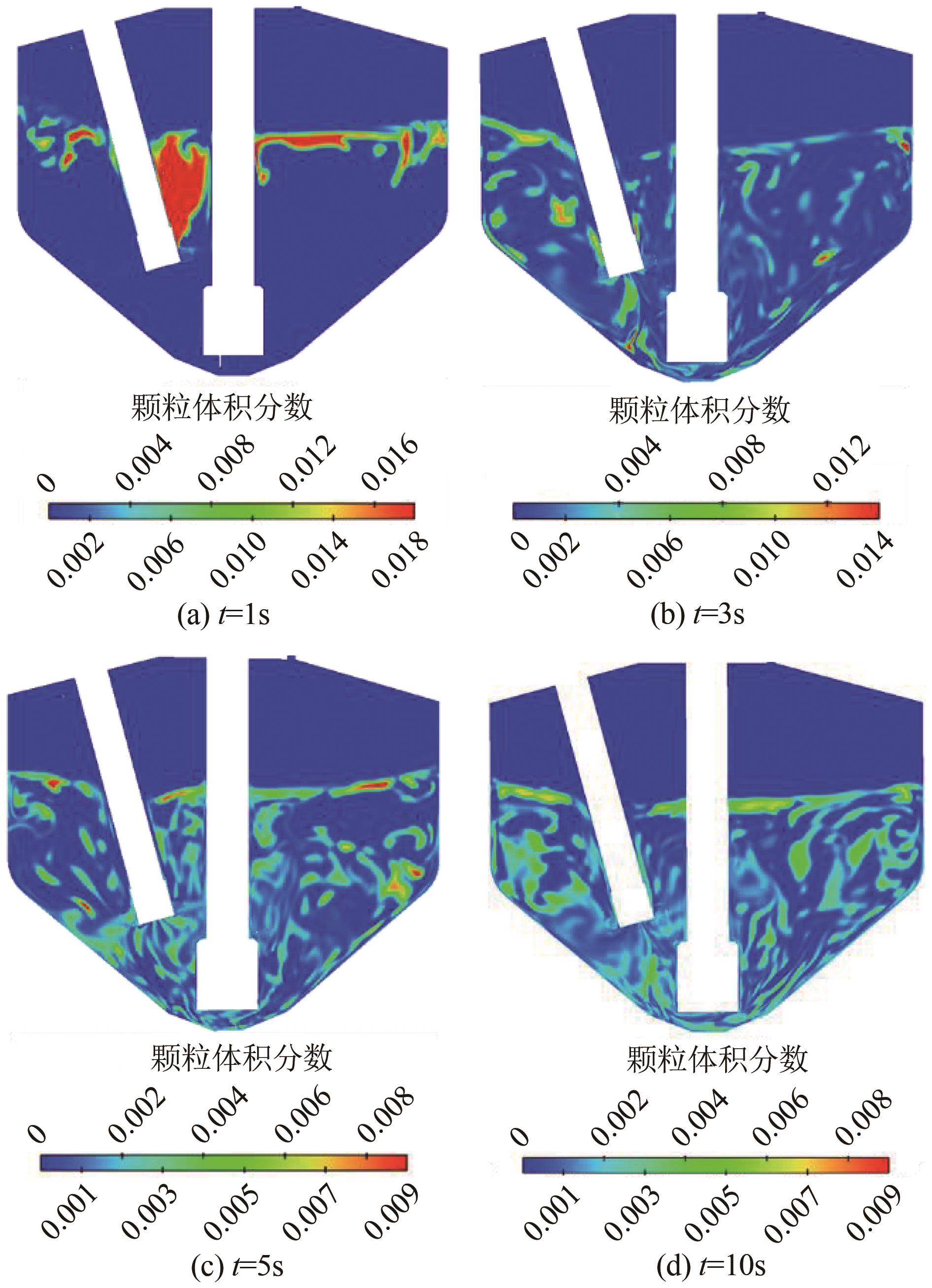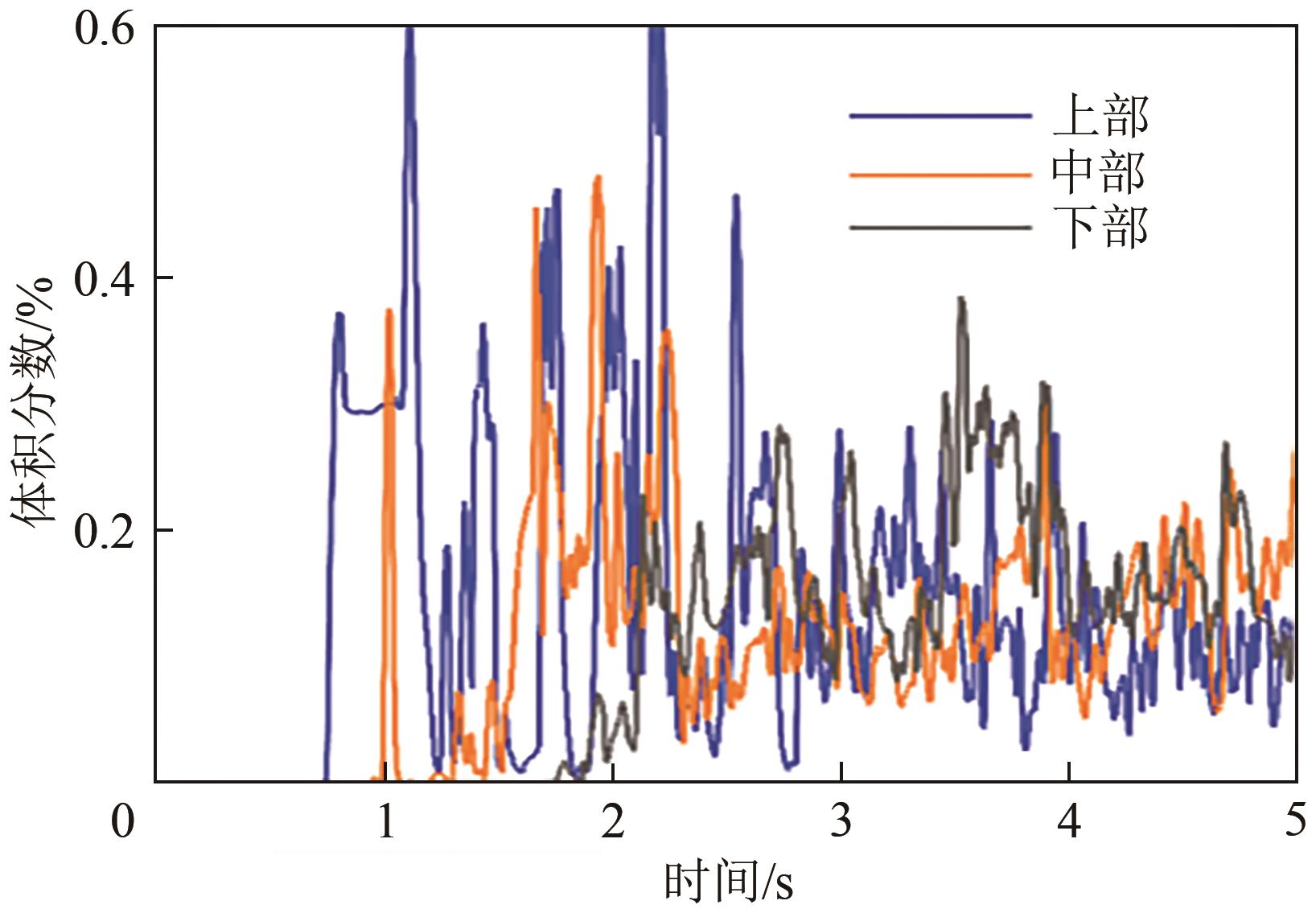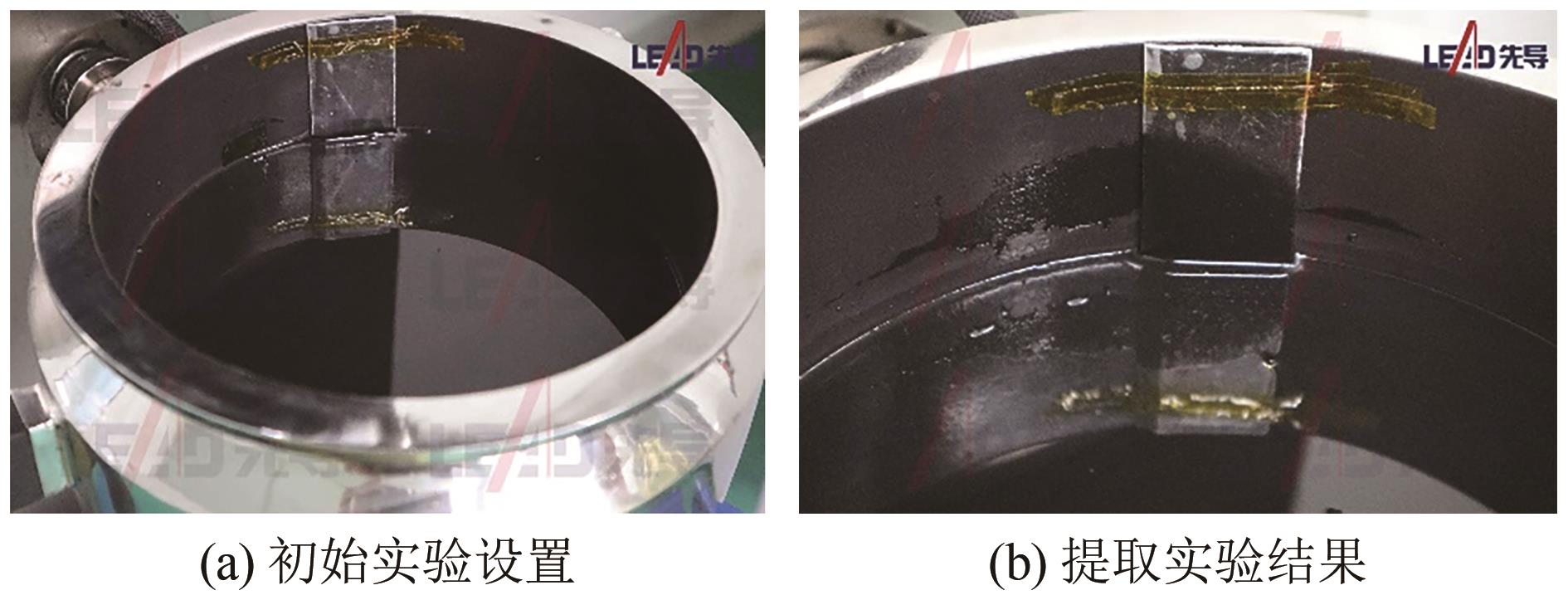Chemical Industry and Engineering Progress ›› 2024, Vol. 43 ›› Issue (9): 4800-4809.DOI: 10.16085/j.issn.1000-6613.2023-1450
• Chemical processes and equipment • Previous Articles
Numerical simulation of proton exchange membrane fuel cell catalyst ink mixing process
LI Sheng1( ), CHEN Yazhou1, JIANG Wei1, PENG Jie1(
), CHEN Yazhou1, JIANG Wei1, PENG Jie1( ), FAN Caiwei2, SHAO Meng2
), FAN Caiwei2, SHAO Meng2
- 1.Department of Engineering Mechanics, Tsinghua University, Beijing 100084, China
2.Jiangsu Lead Hydrogen Intelligent Equipment Co. , Ltd. , Wuxi 214000, Jiangsu, China
-
Received:2023-08-21Revised:2024-03-11Online:2024-09-30Published:2024-09-15 -
Contact:PENG Jie
质子交换膜燃料电池浆料混合过程数值模拟
李晟1( ), 陈亚舟1, 姜威1, 彭杰1(
), 陈亚舟1, 姜威1, 彭杰1( ), 樊采薇2, 邵孟2
), 樊采薇2, 邵孟2
- 1.清华大学工程力学系,北京 100084
2.江苏氢导智能装备有限公司,江苏 无锡 214000
-
通讯作者:彭杰 -
作者简介:李晟(1993—),男,博士研究生,研究方向为流体力学。E-mail:leesheng1024@outlook.com。 -
基金资助:国家重点研发计划(2021YFB3800400)
CLC Number:
Cite this article
LI Sheng, CHEN Yazhou, JIANG Wei, PENG Jie, FAN Caiwei, SHAO Meng. Numerical simulation of proton exchange membrane fuel cell catalyst ink mixing process[J]. Chemical Industry and Engineering Progress, 2024, 43(9): 4800-4809.
李晟, 陈亚舟, 姜威, 彭杰, 樊采薇, 邵孟. 质子交换膜燃料电池浆料混合过程数值模拟[J]. 化工进展, 2024, 43(9): 4800-4809.
share this article
Add to citation manager EndNote|Ris|BibTeX
URL: https://hgjz.cip.com.cn/EN/10.16085/j.issn.1000-6613.2023-1450
| φ/% | A | n |
|---|---|---|
| 0.11(标准) | 0.00519 | 0.9985 |
| 0.26 | 0.00483 | 0.9958 |
| 0.38 | 0.00491 | 0.9942 |
| 0.50 | 0.00488 | 0.9909 |
| 0.63 | 0.00535 | 0.9911 |
| 1.24 | 0.00837 | 0.9488 |
| φ/% | A | n |
|---|---|---|
| 0.11(标准) | 0.00519 | 0.9985 |
| 0.26 | 0.00483 | 0.9958 |
| 0.38 | 0.00491 | 0.9942 |
| 0.50 | 0.00488 | 0.9909 |
| 0.63 | 0.00535 | 0.9911 |
| 1.24 | 0.00837 | 0.9488 |
| 分散方式 | 颗粒体积分数标准差 |
|---|---|
| 75r/min搅拌 | 0.000716640 |
| 50r/min搅拌+高速剪切 | 0.000431951 |
| 分散方式 | 颗粒体积分数标准差 |
|---|---|
| 75r/min搅拌 | 0.000716640 |
| 50r/min搅拌+高速剪切 | 0.000431951 |
| 混浆方式 | hmax/h0(实验) | hmax/h0(模拟) | 误差/% |
|---|---|---|---|
| 50r/min | 1.1048 | 1.1659 | 5.52 |
| 75r/min | 1.2010 | 1.2796 | 6.58 |
| 50r/min+高速剪切 | 1.2714 | 1.2707 | -0.06 |
| 混浆方式 | hmax/h0(实验) | hmax/h0(模拟) | 误差/% |
|---|---|---|---|
| 50r/min | 1.1048 | 1.1659 | 5.52 |
| 75r/min | 1.2010 | 1.2796 | 6.58 |
| 50r/min+高速剪切 | 1.2714 | 1.2707 | -0.06 |
| 1 | 高帷韬, 雷一杰, 张勋, 等. 质子交换膜燃料电池研究进展[J]. 化工进展, 2022, 41(3): 1539-1555. |
| GAO Weitao, LEI Yijie, ZHANG Xun, et al. An overview of proton exchange membrane fuel cell[J]. Chemical Industry and Engineering Progress, 2022, 41(3): 1539-1555. | |
| 2 | DIXIT Marm B, HARKEY Brice A, SHEN Fengyu, et al. Catalyst layer ink interactions that affect coatability[J]. Journal of the Electrochemical Society, 2018, 165(5): F264-F271. |
| 3 | GUO Yuqing, YANG Daozeng, LI Bing, et al. Effect of dispersion solvents and ionomers on the rheology of catalyst inks and catalyst layer structure for proton exchange membrane fuel cells[J]. ACS Applied Materials & Interfaces, 2021, 13(23): 27119-27128. |
| 4 | KHANDAVALLI Sunilkumar, PARK Jae Hyung, KARIUKI Nancy N, et al. Rheological investigation on the microstructure of fuel cell catalyst inks[J]. ACS Applied Materials & Interfaces, 2018, 10(50): 43610-43622. |
| 5 | SUZUKI Takahiro, OKADA Shinya, TSUSHIMA Shohji. Characterization of catalyst inks by rheology and microscopic particle properties[J]. ECS Transactions, 2018, 86(13): 193-198. |
| 6 | KHANDAVALLI Sunilkumar, IYER Radhika, PARK Jae Hyung, et al. Effect of dispersion medium composition and ionomer concentration on the microstructure and rheology of Fe-N-C platinum group metal-free catalyst inks for polymer electrolyte membrane fuel cells[J]. Langmuir, 2020, 36(41): 12247-12260. |
| 7 | YOSHIMUNE Wataru, HARADA Masashi. Temperature-induced shear-thinning in catalyst inks[J]. Electrochemistry Communications, 2021, 130: 107099. |
| 8 | 陈阿强, 黄青山, 耿淑君, 等. 喷射反应器内气液两相流体动力学特征[J]. 化工进展, 2018, 37(4): 1257-1266. |
| CHEN Aqiang, HUANG Qingshan, GENG Shujun, et al. Hydrodynamic characteristics of gas-liquid two phase flow in jet reactors[J]. Chemical Industry and Engineering Progress, 2018, 37(4): 1257-1266. | |
| 9 | 叶青, 杨建鑫, 李泳江, 等. 润滑管道内油气两相流压力脉动特性分析[J]. 化工进展, 2019, 38(8): 3596-3603. |
| YE Qing, YANG Jianxin, LI Yongjiang, et al. Pressure fluctuation analysis of oil-gas two-phase flow in lubricating pipeline[J]. Chemical Industry and Engineering Progress, 2019, 38(8): 3596-3603. | |
| 10 | 庞博学. 非牛顿流体-颗粒两相流的颗粒动理学理论与数值模拟[D]. 哈尔滨: 哈尔滨工业大学, 2021. |
| PANG Boxue. Kinetic theory and numerical simulation of non-Newtonian fluid-particle flow[D]. Harbin: Harbin Institute of Technology, 2021. | |
| 11 | 钟丽, 黄雄斌, 贾志刚. 固-液搅拌槽内颗粒离底悬浮临界转速的CFD模拟[J]. 北京化工大学学报(自然科学版), 2003, 30(6): 18-22. |
| ZHONG Li, HUANG Xiongbin, JIA Zhigang. CFD modeling of solids just-suspended impeller speed in stirred tanks[J]. Journal of Beijing University of Chemical Technology, 2003, 30(6): 18-22. | |
| 12 | 黄芷薇, 宋康康, 邢丽丽. 基于CFD的混砂车搅拌罐入水口规划分析及优化[J]. 现代制造技术与装备, 2022, 58(1): 77-80. |
| HUANG Zhiwei, SONG Kangkang, XING Lili. Analysis and optimization of inlet planning of mixing tank of sand mixer based on CFD[J]. Modern Manufacturing Technology and Equipment, 2022, 58(1): 77-80. | |
| 13 | 许弯弯, 武进虎, 秦伟杰, 等. 基于正交设计法对混浆搅拌罐的结构优化[J]. 内江科技, 2018, 39(1): 52-53. |
| XU Wanwan, WU Jinhu, QIN Weijie, et al. Structure optimization of mixing tank based on orthogonal design method[J]. Nei Jiang Science and Technology, 2018, 39(1): 52-53. | |
| 14 | 银建中, 程绍杰, 贾凌云, 等. 搅拌式反应器内固-液两相悬浮特性的CFD模拟[J]. 应用科技, 2009, 36(11): 11-16. |
| YIN Jianzhong, CHENG Shaojie, JIA Lingyun, et al. CFD simulation of solid-liquid suspension characteristics in stirred tank reactor[J]. Applied Science and Technology, 2009, 36(11): 11-16. | |
| 15 | SHARIAT Mohammad, MOGHARI Reza Mokhtari, AKBARINIA Alireza, et al. Impact of nanoparticle mean diameter and the buoyancy force on laminar mixed convection nanofluid flow in an elliptic duct employing two phase mixture model[J]. International Communications in Heat and Mass Transfer, 2014, 50: 15-24. |
| 16 | BAHIRAEI Mehdi, HOSSEINALIPOUR Seyed Mostafa. Particle migration in nanofluids considering thermophoresis and its effect on convective heat transfer[J]. Thermochimica Acta, 2013, 574: 47-54. |
| 17 | YAGHOUBI EMAMI Reza, SIAVASHI Majid, SHAHRIARI MOGHADDAM Gholamreza. The effect of inclination angle and hot wall configuration on Cu-water nanofluid natural convection inside a porous square cavity[J]. Advanced Powder Technology, 2018, 29(3): 519-536. |
| 18 | MANNINEN Mikko, TAIVASSALO Veikko, ENERGY VTT, et al. On the mixture model for multiphase flow[M]. VTT Technical Research Center of Finland, 1996. |
| 19 | SCHILLER L, NAUMANN A. A drag coefficient correlation[J]. Zeitschrift des Vereins Deutscher Ingenieure, 1935, 77: 318-320. |
| [1] | MA Lingyan, LI Yibin, ZHOU Huan, TIE Xingyu, ZHAO Rensheng, ZHOU Wenhan. Analysis of the influence of rotational speed and height on the mixing performance under different blade diameters of arc-blade agitator [J]. Chemical Industry and Engineering Progress, 2024, 43(8): 4283-4296. |
| [2] | ZENG Wuqing, WANG Yu, BU Qingguo, MA Shuo, BAI Dongming, ZHANG Zongjian, ZHANG Peng, MA Dandan, WANG Shengbo, WANG Runqi, WU Liwen, LIU Chen, MA Hongting. Influence of mixed burning of aged refuse on the incineration characteristics of waste furnace [J]. Chemical Industry and Engineering Progress, 2024, 43(8): 4642-4653. |
| [3] | XING Lei, MIAO Chunyu, JIANG Minghu, ZHAO Lixin, CAI Meng, LI Xinya. Analysis of flow field characteristics and performance of hydrocyclone in blocked conditions [J]. Chemical Industry and Engineering Progress, 2024, 43(7): 3776-3786. |
| [4] | GUO Peng, LI Hongwei, LI Guixian, JI Dong, WANG Dongliang, ZHAO Xinhong. Mechanisms and coping strategies on deactivation of anode catalysts for direct methanol fuel cells [J]. Chemical Industry and Engineering Progress, 2024, 43(7): 3812-3823. |
| [5] | LAN Ruisong, LIU Lihua, ZHANG Qian, CHEN Boyan, HONG Junming. Performance and biotoxicity evaluation of sulfur-doped graphene as a cathode for MFC [J]. Chemical Industry and Engineering Progress, 2024, 43(6): 3430-3439. |
| [6] | FENG Zhanxiong, ZHANG Chuang, LIU Dezheng, WANG Yun, MA Qiang, WANG Cheng. Effect of different atmosphere heat treatment on the oxygen reduction performance of Pt/C catalysts prepared by continuous pipeline microwave technology [J]. Chemical Industry and Engineering Progress, 2024, 43(6): 3080-3092. |
| [7] | MIAO Yihe, WANG Yaozu, LIU Yuhang, ZHU Xuancan, LI Jia, YU Lijun. Research progress on the improving effect of additives on supported amine adsorbents for carbon capture [J]. Chemical Industry and Engineering Progress, 2024, 43(5): 2739-2759. |
| [8] | ZHANG Bao, WANG Peng, AN Yongpan, LYU Ping, JIANG Jianliang. Design and experiment of fuel cell systems for marine application [J]. Chemical Industry and Engineering Progress, 2024, 43(5): 2554-2567. |
| [9] | FANG Yao, LIU Lei, GAO Zhihua, HUANG Wei, ZUO Zhijun. Advances in anode catalysts for photo-assisted direct methanol fuel cells [J]. Chemical Industry and Engineering Progress, 2024, 43(5): 2611-2628. |
| [10] | ZHU Taizhong, ZHANG Liang, HUANG Zequan, LUO Lingping, HUANG Fei, XUE Lixin. Preparation and characterization of gel polybenzimidazole proton exchange membrane with alkyl sulfonic acid side chains [J]. Chemical Industry and Engineering Progress, 2024, 43(4): 1962-1971. |
| [11] | ZHAO Jilong, GUO Yuxiang, CHEN Hongxia, YUAN Dazhong, DU Xiaoze. Experimental and numerical simulation on heat transfer characteristics of vertical cesium heat pipes [J]. Chemical Industry and Engineering Progress, 2024, 43(4): 1711-1719. |
| [12] | QIAN Zhiguang, WANG Shixue, ZHU Yu, YUE Like. Start-up characteristics of high-temperature proton exchange membrane fuel cell stacks based on flat heat pipes [J]. Chemical Industry and Engineering Progress, 2024, 43(4): 1754-1763. |
| [13] | CHEN Jiayi, GAO Weitao, YIN Yanan, WANG Cheng, OUYANG Hongwu, MAO Zongqiang. Preparation of PEMFC catalysts by electrodeposition [J]. Chemical Industry and Engineering Progress, 2024, 43(4): 1796-1809. |
| [14] | YU Yanfang, SHI Bowen, MENG Huibo, DING Pengcheng, YAO Yunjuan. Characteristics analysis of gas solid two-phase flow in pneumatic conveying based on CFD-DEM algorithm [J]. Chemical Industry and Engineering Progress, 2024, 43(3): 1133-1144. |
| [15] | LI Jing, FANG Qing, ZHOU Wenhao, WU Guoliang, WANG Jiahui, ZHANG Hua, NI Hongwei. Effect of baffle configuration on the multiphase flow behaviors of vanadium shale leaching tank [J]. Chemical Industry and Engineering Progress, 2024, 43(2): 619-627. |
| Viewed | ||||||
|
Full text |
|
|||||
|
Abstract |
|
|||||
